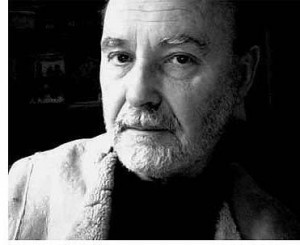Het Canadese Hooggerechtshof heeft unaniem geoordeeld dat het plaatsen van een hyperlink naar een lasterlijk artikel zelf geen laster is. ‘I would conclude that a hyperlink, by itself, should never be seen as ‘publication’ of the content to which it refers’, zo stelde de rechter van het Hooggerechtshof Rosalie Silberman Abella, namens het gerechtshof dat een hoger beroep behandelde in de zaak Crookes vs Newton. Het oordeel van het hof voegt er aan toe dat ‘only when a hyperlinker presents content from the hyperlinked material in a way that actually repeats the defamatory content, should that content be considered to be ‘published’ by the hyperlinker’.
De zaak betreft Jon Newton, die de site p2pnet redigeert. Deze site richt zich op file-sharing. Vijf jaar geleden schreef hij een post over een zaak die de Vancouver zakenman Wayne Crookes betro. Deze had een voormalige partner aangeklaagd voor het publiceren van online artikelen die Crookes als lasterlijk beschouwde. Newton’s online verslag van die zaak bevatte hyperlinks naar de betreffende content. Crookes eiste dat Newton de links verwijderde, wat deze weigerde te doen. Crookes spande daarop ook een zaak tegen Newton aan. Voor elk lager hof (en ook nu voor het Hooggerechtshof) stelden Crookes’ advocaten ter discussie de ‘commonly held notion that hyperlinks can be understood as footnotes—pointing to but not publishing the material in question’.
 Voor het Hooggerechtshof claimde Crookes dat ‘the creation of a hyperlink actually embeds the referred to material in the primary article. The utilization of a hyperlink, if it is analogous at all to the footnote in written material or a card index in a library, would be analogous only if the material accessed by the hyperlink were stapled to the written material or card index’. Een staaltje van unike bewijsvoering, die blijk geeft van een volstrekt onbegrip over wat een ‘link’ nu eigenlijk is.
Voor het Hooggerechtshof claimde Crookes dat ‘the creation of a hyperlink actually embeds the referred to material in the primary article. The utilization of a hyperlink, if it is analogous at all to the footnote in written material or a card index in a library, would be analogous only if the material accessed by the hyperlink were stapled to the written material or card index’. Een staaltje van unike bewijsvoering, die blijk geeft van een volstrekt onbegrip over wat een ‘link’ nu eigenlijk is.
Ook het Hooggerechtshof heeft nu (net als de lagere hoven) vastgesteld dat die bewijsvoering niet opgaat. ‘Hyperlinks are, in essence, references’, zo stelt rechter Abella. ‘Both communicate that something exists, but do not, by themselves, communicate its content. And they both require some act on the part of a third party before he or she gains access to the content. The fact that access to that content is far easier with hyperlinks than with footnotes does not change the reality that a hyperlink, by itself, is content neutral—it expresses no opinion, nor does it have any control over, the content to which it refers’.
Een belangrijke uitspraak voor iedere blog, die links gebruikt om naar andere content te verwijzen. En voor tweets, facebook of welke internetcommunicatie dan ook, omdat hyperlinks essentieel zijn voor het functioneren daarvan. Het Canadese Hooggerechtshof heeft dat begrepen. ‘The Internet cannot provide access to information without hyperlinks’, zo stelt het Hof. ‘Limiting their usefulness by subjecting them to the traditional publication rule would have the effect of seriously restricting the flow of information and, as a result, freedom of expression. The potential ‘chill’ in how the Internet functions could be devastating, since primary article authors would unlikely want to risk liability for linking to another article over whose changeable content they have no control. Given the core significance of the role of hyperlinking to the Internet, we risk impairing its whole functioning. Strict application of the publication rule in these circumstances would be like trying to fit a square archaic peg into the hexagonal hole of modernity’.
Reacties zijn over het algemeen positief. Het oordeel van het Hooggerechtshof ‘importantly permits internet users to continue sharing links without looking over their shoulders’, zo verklaart de Canadian Internet Policy and Public Interest Clinic kort na de beslissing. De CIPPIC intervenieerde voor Newton.
Michael Geist, hoogleraar recht aan de universiteit van Ottawa, stelt dat verschillende rechters wat afwijkende ondersteunende meningen hebben. Een rechter stelde dat ‘a link could be understood as publication if read contextually, the text that includes the hyperlink constitutes adoption or endorsement of the specific content it links to’. Maar, zo stelt Geist, ‘the ruling is amongst the most important the Supreme Court has issued involving the Internet. The decision rightly places responsibility for defamatory speech where it belongs—with the person who posted the content’.
Newton zelf is uiterst tevreden. ”Awesome’ is a word much-over used in the 21st digital century. But in this instance, it can be accurately applied’, zo schrijft hij in zijn laatste blog post. ‘Will online freedom of speech survive in Canada? Now we know’.”
